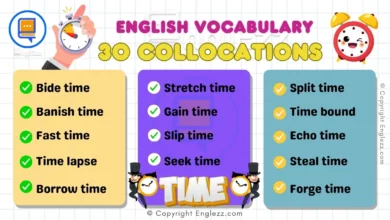Expressing Feelings ESL Vocabulary Worksheets
Welcome back to #englezz vocabulary lessons series.
In today’s lesson we will be focusing on the expressions that one needs to express or ask about his or her feelings.
Table of Contents
Talking About Feelings and Emotions – Basic English Speaking
As we all know feelings are part of our daily routine simply because every action we make or a reaction we get, makes us have a different feeling according to this or that situation. With our facial gestures we can also express feelings.
That’s why – as a learner – you should be able to rename these feelings if you want to ask questions or give answers about them.
You can learn some examples through our interactive course in the video below. Here you can listen, repeat and simply practice some of the most common ESL / EFL expressions and phrases used to express emotions and feelings. ???? ????
Expressing Feelings Phrases with Arabic Translation:
These are the most common expressions and phrases used to express emotions and feelings with their equivalents in Arabic:
دروس في اللغة الإنجليزية: مصطلحات ومفردات إنجليزية للتعبير عن المشاعر
- Happy = سعيد
- Afraid = خائف
- Frustrated = ضجر
- Sad = حزين
- Blessed = مبارك
- Surprised = متفاجئ
- Tired = متعب
- Scared = مرعوب
- Proud = فخور
- Anxious = قلق
- Shy = خجول
- Loved = محبوب
- Crazy = مجنون
- Silly = ساذج
- Stressed = متوتر
- Embarrassed = متضايق
- Disgusted = مشمئز
- Optimistic = متفائل
- pessimistic = متشائم
- Hostile = عنيف
- Bored = ضجر
- Excited = متشوق
- Energetic = حيوي أو نشيط
Download free crosswords, puzzles, worksheets and flashcards about the most common ESL / EFL expressions and phrases used to express emotions and feelings for beginners from the links below. This vocabulary lesson is targeted to the beginners and intermediate to build their basic vocabulary in English and help them speak confidently. You can review the expressions to talk about your family in English in our lesson here.
Expressing Feelings Worksheets PDF
Now! You are able to name the means of transport in English. Congratulations and keep practicing for better mastery. Thanks for your attention. Hope you liked the lesson and see you again in an other English lesson in our coming courses. Don’t forget to subscribe to our newsletters to receive new tips right to you inbox.








